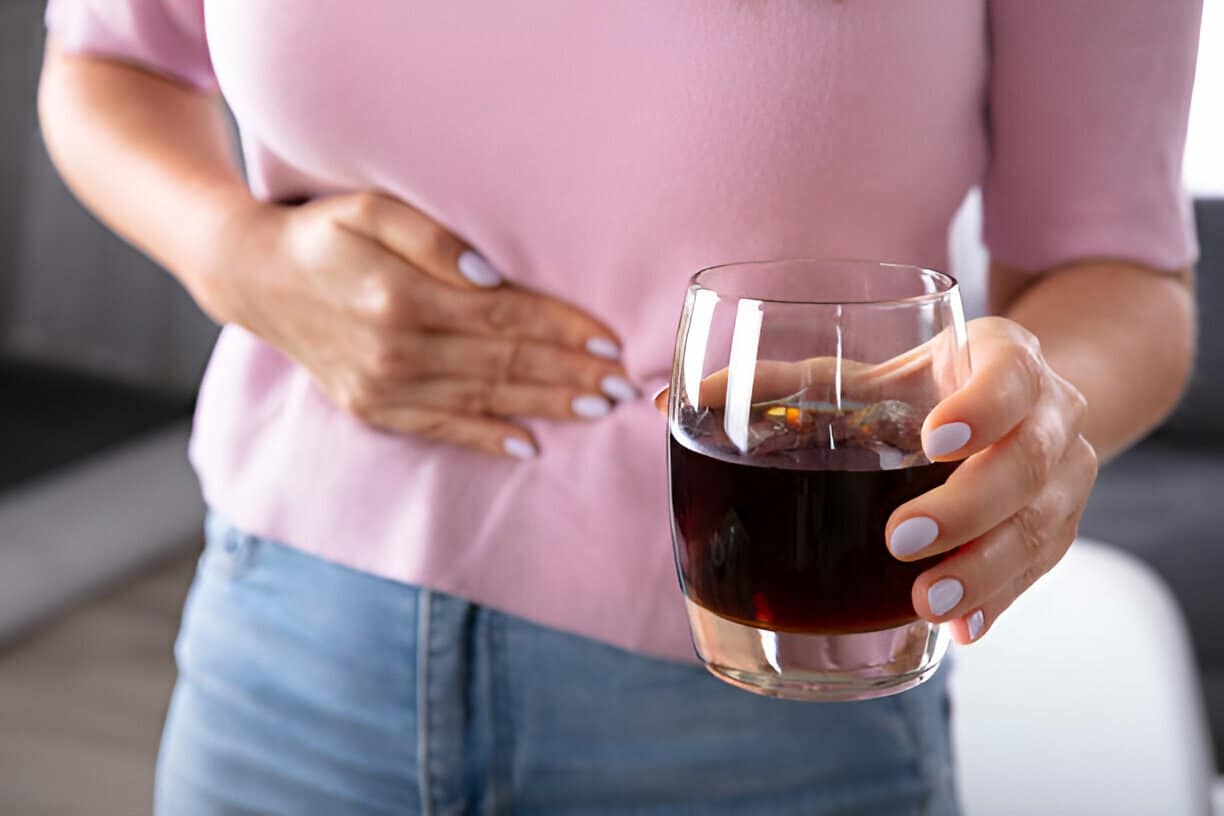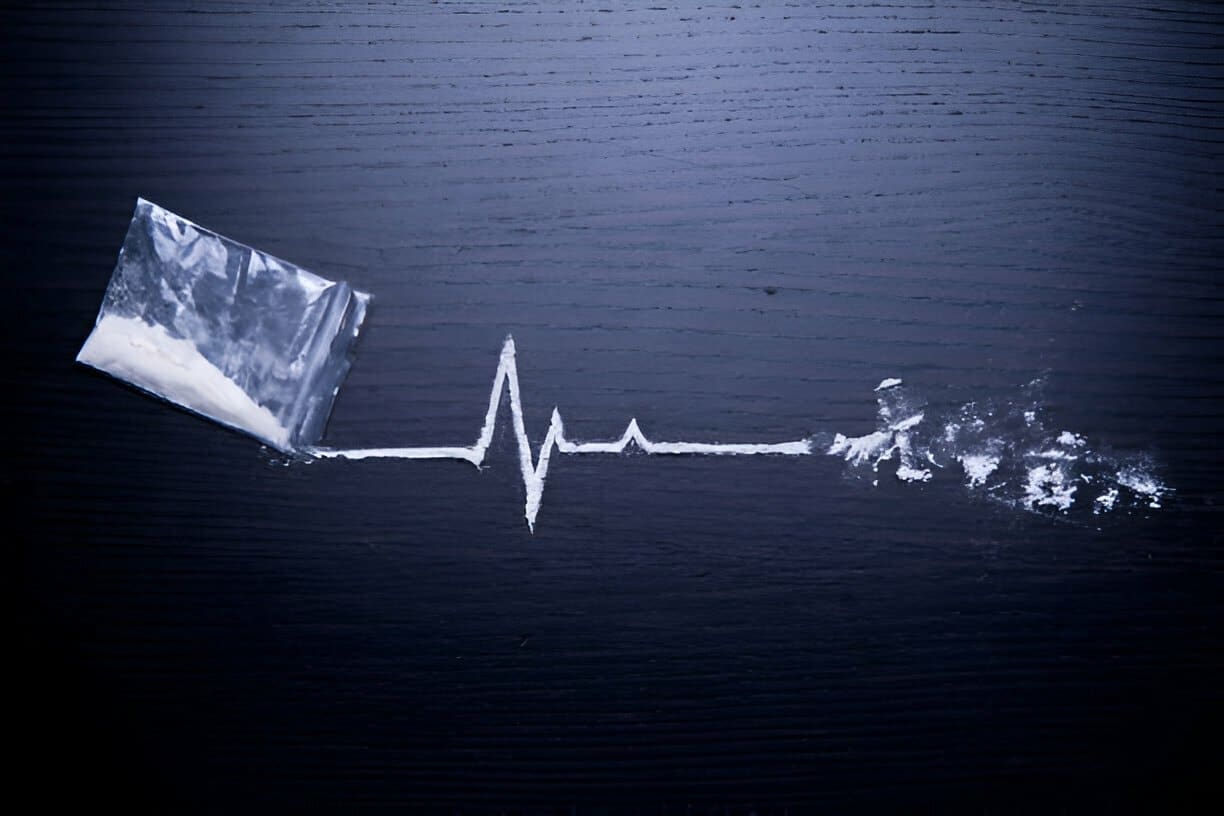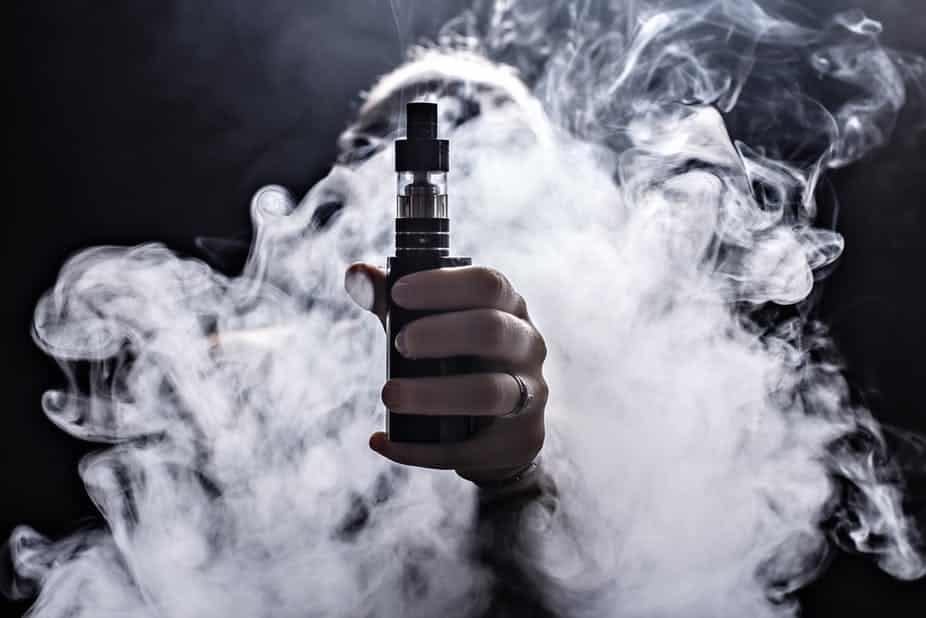An effective relapse-prevention plan is essential for treating a client in an addiction programme, whether inpatient or outpatient. The individual works hard in treatment to uncover the underlying causes of their drinking or drug addiction; staying clean entails treating the causes and modifying behaviour patterns. Many relapse prevention regimens incorporate coping skills for dealing with environmental cues that lead to use.

Understanding the patient’s specific signs and assisting them in stopping the circular thinking that leads to substance misuse is key to preventing relapse. There are various stages of relapse, and relapse prevention works to determine where a client is in the relapse process and how best to stop them from using again.
Recognising the early indicators of relapse is critical because it begins long before the person takes up a drink or takes drugs. Relapse is often preceded by a lack of self-care and the suppression of emotions. In this case, poor eating and sleeping habits and ignoring emotional stressors constitute a lack of self-care.
Relapse prevention comprises counselling that teaches patients how to use positive thinking and self-care to improve their response to stressors and emotions.
If your loved one needs support dealing with an Alcohol Addiction, contact us today on 0800 999 1083. We can help you by recommending treatment options.
Emotional relapse is similar to post-acute withdrawal syndrome (PAWS) symptoms. These include anxiety and despair and mood swings, wrath, and defensiveness. The individual may remember how horrible they felt while drinking or using and prefer to avoid the substance at this stage of relapse. However, recognising that the person is isolating themselves and not seeking help is crucial to preventing relapse in its early phases.
Relapse prevention plans at this stage of recovery focus on positive behaviours and self-care. Those in treatment should remember that they are nervous at this moment and should practise relaxation techniques. They should retrain and practise physical self-care if their eating and sleeping habits are slipping. When one is hungry, angry, lonely, or exhausted, resisting temptation is more complicated.
Mental relapse is the next phase of relapse. In our heads, there’s a battle going on right now. They may be considering using it again, and the thoughts become more intrusive as the stage advances. Also, their previous substance misuse lifestyle is glamorised, and the individual may begin lying about meeting former pals or returning to their favourite hangout spots.
During a mental relapse, the person believes they have control over their use and will be able to quit before they use excessively or ‘just have one.’ Addiction tells a lot of lies, and this is one of them. Talking to a friend and explaining that they want to use are two strategies for preventing relapse.
Stress is a common trigger for people in recovery. The substance is frequently used to assist people to escape or relax after a long day at work or to reduce the stress of difficult home life. For many people, stress is a significant trigger since it is an inflammatory emotion that involves aggression, fear, and a sense of helplessness.
When consumed while anxious, the substance relieves the user’s mental anguish. The desire to use it during difficult times might be strong because the brain has been programmed to believe that the chemical relieves stress. To avoid relapse at this time, it’s critical to manage stress in a healthy way.
A brisk walk outside to clear the thoughts may be beneficial, primarily because exercise produces hormones that increase mood naturally. Another technique to gently de-stress is to adopt mindful meditation activities — and many guided meditation albums are explicitly designed for substance addicts.
Being the only sober person in a circle of friends can be scary if you’re battling addiction. Continued contact with previous companions may result in a relapse merely due to habit or peer pressure. Abstaining from the environments that make it acceptable and straightforward to use is part of changing the responses that lead to abuse.
At this point of rehabilitation, limiting interaction with former social circles can help protect the individual during the acute stages of early recovery. It might be challenging to make new relationships, which is why many recovery plans include going to group sessions to meet individuals who are in similar situations but are not using.

Addiction is a habitual process, and simply being in the same area where the individual chose to use can trigger a chronic need to use. Nostalgia is strong, and during the mental relapse stage, the person may romanticise their previous hangout spots and believe they can control their substance misuse. The local pub is not usually the best place for someone recovering from addiction to spending time.
During times of stress, rage, or loneliness, the surroundings themselves may act as a trigger. If the previous hangout was a typical stop on the way home, treatment options might include taking other routes to and from work.
Negative emotions make us feel depleted and unappreciated. The HALT acronym stands for Hunger, Anger, Loneliness, and Tiredness, which are the most common negative emotions. When these emotions are running strong in our heads, it’s more challenging to change our thinking and start acting in more positive ways.
Negative emotions cause an imbalance in the mind, leading to a desire for the feelings to disappear. For many people battling addiction, this is why they started using it in the first place: to numb or escape from these negative emotions.
While most of the battle against addiction is psychological, there is also a physical component. A primordial physical reaction might be triggered by seeing, smelling, or tasting the addictive chemical. You may begin to believe that you have recovered control over your drinking or drug use during the mental stage of relapse. Seeing the substance may confirm your perception that you can quit whenever you choose, but this isn’t always the case.
While seeing a cold mug of beer or a syringe may not always prompt you to use, you must have a plan in place before the trigger arrives. This is when the relapse-prevention strategies you learned during therapy will be put to use. Understanding the sudden impulse to drink when strolling through the beverage aisle of a nearby store, for example, might help you be prepared to utilise coping skills or wait out the cravings. You are free to express any concerns with your therapist about the strategies you will learn.
For many people, substance abuse and celebrations go hand in hand. The best option is to avoid these special events for a patient in early recovery. However, if they cannot skip the event, having methods in place ahead of time to limit the temptation to use and stop glamorising their previous lifestyle is critical.
Many people make an effort to bring non-alcoholic beverages. Many people appreciate spending a little additional money on artisanal soft drinks or making lemonade from scratch because it tastes delicious and feels like a special treat. Leaving the event early can help, as the desire to use grows stronger over time.
Taking a date or a friend who does not use it might provide encouragement and support. We all need someone to talk to who isn’t addicted to drugs or alcohol, especially after completing a rehab programme.
Addiction is primarily a psychological condition, and the stages of relapse begin even before we consume drugs or an alcoholic beverage. Understanding where one is in the relapse process is essential for employing preventative techniques to lower the desire to use and practise adequate self-care.
In all stages of recovery, it is critical to have support and connections with others who are facing addiction. Many people can also detect relapse behaviours in others, which can be a helpful tool in assisting others who are battling relapse.
Relapse can be divided into three stages. Understanding each facet and having pre-planned coping methods for each phase might help patients redirect their thoughts and behaviour.
Withdrawing from alcohol or drugs physically impacts the brain and emotions, including anxiety and despair. These feelings progressively fade as the brain heals. However, individuals’ strong negative feelings that drove them to drink can provoke a relapse at this point.
During the emotional relapse stage, treatment can benefit the individual in understanding the causes for negative feelings and guiding them to non-drug-based ways of dealing with these emotions. During the emotional phase of relapse, poor self-care can swiftly progress to mental relapse. Relapse prevention strategies include journaling, exercise, and cognitive behavioural therapy.
The individual’s battle with themselves is at the heart of mental relapse. At this point, the patient begins to consider using again more casually. These thoughts become increasingly obsessive, and individuals start believing they have control over their drinking or drug use.
During a mental relapse, it is vital to maintain self-care and therapy and record the outcomes of a night of substance misuse, which the person can use to remember why they quit in the first place. At this time, the patient’s cravings may grow more severe, and they may experience nice memories of people and places they used to visit.
The act of picking up a drink or contacting a drug dealer is referred to as a physical relapse. There may be a lapse in which the person has a minor slip-up, or a full relapse, in which the person reverts to their former habits.

Physical relapse prevention is more complicated than simply saying no when the opportunity presents itself. The confluence of the client’s emotional and mental relapses has left them too overwhelmed to say no.
When people believe they won’t be caught, they may relapse physically. To avoid physically using again, it’s critical to have mechanisms in place and recognise when the user is in a susceptible circumstance.
This skill-based cognitive behavioural therapy approach aims to untangle the client’s way of thinking and coping with non-substance-related life stressors. Different pathways in the brain result from addiction, and part of RPT is taking the time to consciously stop the destructive thought patterns and realign them in a more healthy way.
The client and the therapist collaborate to address internal addiction cues and external stimuli that may increase the desire to drink or use substances. The cognitive techniques address the client’s thinking style, whilst the behavioural elements assist the users in making better decisions when stressed or agitated.
As the patient’s coping abilities develop, they have a better sense of self-worth and confidence in their capacity to deal with challenging situations. These newly acquired habits make it easier to avoid relapse. Patients and therapists collaborate in treatment to discover the specific conditions in the person’s life that trigger the desire to use. Following the definition of these scenarios, the emotions linked with them are explored.
Finding various ways to relax during high-stress moments is part of coping skills training. One of the coping methods that the therapist teaches is rerouting the stress reaction. Each person is different, and some people may find that meditation, exploring their emotions, and allowing themselves to feel their feelings are more effective ways to relax completely. Others may find an exercise or a hobby to be relaxing.
Negative thinking is common among addicts, and it exacerbates anxiety and sadness. Working through the fundamental reasons for anxiety and depression can assist the patient in rerouting their thoughts, making it more straightforward for them to deal with their feelings rather than relying on substances to numb them. This enables the patient in rerouting their thoughts and discover new strategies to cope with their emotions.
When a person is confronted with a potentially dangerous scenario, they may respond without thinking. The patient can reframe their thinking through cognitive therapy. This includes determining when the impulse to use arises within a negative mental cycle. Slowing the mental process and diverting reactions into a more practical way of thinking might help consumers cope with stress more effectively.
It becomes easier to make healthy choices once you have successfully created a new lifestyle that does not include substance abuse. If nothing changes after you finish your recovery, it’s easy to revert to old behaviours and ways of thinking.
Removing the triggers that lead to substance misuse is usually part of a lifestyle transformation. It’s easier to make better decisions when surrounded by different influences. Removing stressors from the patient’s previous life allows them to practise the behavioural and cognitive improvements that help them avoid relapse.

There are a few very widespread triggers. Internal thoughts and external stimuli are identified as triggers, which cause those in recovery to seek alcohol or drugs and potentially relapse. Engaging with a therapist to recognise personal triggers and build non-alcohol or non-drug coping mechanisms to deal with them is critical.
Examples of external triggers are people, places, events, and even objects the individual associates with using. Instead of simply removing environmental stimuli, relapse prevention requires replacing old patterns with new ones.
Internal triggers are the body’s reaction to stressful conditions. These may be more difficult for the user to eliminate because emotional responses trigger the desire to use. These feelings are a natural response, although the individual may learn various strategies to cope with these emotions in therapy.
Fear, anxiety, guilt, and shame are all common internal triggers. Frequently, the patient has experienced severe trauma in the past, which has resulted in unpleasant emotions. People start drinking and using drugs to avoid the discomfort of bad feelings. Dealing with pain in a healthy way can make it simpler for the user to find other strategies to cope with emotional problems without resorting to drugs or alcohol.
Relapse rates for substance abuse range from 40 to 60%. However, due to their physically addictive nature and the ease with which users can obtain them, three substances have the highest relapse rates. Many people abuse multiple substances or suffer from several addictions. This makes it a little more challenging to collect data.
Occasionally, people will switch addictions, going from drinking to drugs or vice versa. Sometimes, the chemical addiction develops into a dangerous behaviour addiction, such as sex or gambling. However, the drugs with the highest relapse rates are opioids, alcohol, and cocaine/crack cocaine.
These three drugs interfere with the brain’s ability to produce dopamine, responsible for the high they induce. The brain can recover and rerelease dopamine and serotonin through abstinence without drinking or taking drugs.
This involves being open and honest with others around them, letting people know when they are feeling provoked or anxious or considering drinking or taking drugs. It’s also critical that they be true to themselves. The importance of honesty is reinforced in several relapse prevention programmes.
Patients can learn about their triggers by being honest with themselves. This might be a spouse, coworker, or old buddy. Personal triggers might include unpleasant situations as well as happy and enjoyable ones. Not everyone, for example, feels compelled to use it when they are furious.
Others may see their substance of choice as a reward, thereby being triggered when they are happy.
Clients can work with their therapist to develop better ways to deal with triggering circumstances by understanding their triggers. Detecting personal triggers is an essential component of the recovery process from addiction and a solid foundation for a relapse prevention strategy.
Relapse is a common thing. Over half of drinkers and drug users relapse due to the difficulty of treating addiction and rewiring people’s reactions, as well as the significant life changes that abstinence demands. Several people may experience many relapses before fully recovering.
The first step toward relapse recovery is to prepare for the remorse and shame of breaking an individual’s sobriety. The following step is to seek assistance. This could include professional therapy, addiction counselling, or attending meetings with other recovering addicts.
Often, the addict is too embarrassed to confess that they have made a mistake and will not seek help. More treatment may be required depending on the length of the relapse – one day vs several weeks. Relapses from alcohol or benzos may demand supervised medical detox, as withdrawals from these drugs can be fatal.

In treatment, a relapse prevention plan is created to identify personal triggers that lead to the emotional, mental, and behavioural relapses that lead to the physical act of drinking or using the substance. Having this plan in place before leaving treatment allows the client to analyse their own emotions that cause them to want to use it.
A relapse prevention plan (RPP) comprises brainstorming scenarios that could lead to the person using the substance. A successful RPP must have five critical components. It all starts with self-reflection and self-awareness about why someone chooses to use the substance. It could be an escape from stress, a way to unwind and enjoy yourself, or a way to deal with the agony of a prior experience.
The RPP then goes over personal triggers and warning indicators. After these have been recognised, the individual should establish a worst-case scenario strategy and tactics for dealing with the circumstance without resorting to the substance. The fourth stage involves people in relapse prevention, as having support reduces the sense of isolation that many users feel. Finally, adopting healthy-living objectives provides us with direction and meaning.
When people fall into addiction, they frequently characterise the experience as a struggle because they lack a strong foundation. This often implies that they have nothing to live for and no foundation to build and create a strong sense of self-worth.
In essence, you may feel as if life no longer matters, and when you eventually decide to embark on the road to recovery, you must first begin by laying a firm foundation for yourself. Like any other construction, the foundation is the first thing you and your therapists will apply.
The best way to develop a relapse prevention plan is to work with a therapist. The patient and therapist discuss what triggers the patient’s urge to drink or use drugs and particular scenarios where the desire to drink or use drugs rises. The most important thing is, to be honest about what caused you to drink or use drugs in the first place.
RPPs differ by person, but the most effective ones involve proactive preparations for stressful situations and an honest look at your inner emotions, such as guilt and shame, that come with triggering situations.
Many individuals discover in recovery that taking each day one at a time, focusing on mindfulness and choosing healthy behaviours is an excellent way to start. Recovering consumers are educated on the three stages of relapse: emotional, mental, and physical. When triggered, they’re encouraged to write in a notebook, admitting their feelings and problems.
Following rehab, those who do not continue with aftercare are more likely to relapse. Every day is made up of small decisions that add up to sobriety, and many patients will learn how to make small changes to establish a sober lifestyle.
It takes a lot of time to use drugs and drink. The empty hours may cause boredom and loneliness for many newly sober persons. These feelings may make you want to drink or use drugs to pass the time.
Relapse prevention can be as simple as picking a fun hobby or scheduling time for self-improvement. Managing sober time demands the creation of good habits. Clients who plan their days can get a sense of control and stability, allowing them to take control of their sober lives.
Avoidance is a part of addiction, including avoiding unpleasant emotions and numbing sensations of rage and boredom. Learning the practice of mindfulness is an essential part of living a good, sober life. This implies that the person is fully present in each moment, savouring happy moments and pleasurable activities and intentionally working through periods of anger, fear, and unpleasant emotions.
Mindfulness practice can aid relapse prevention, which teaches individuals to relax without using drugs or alcohol. These include breathing exercises, promoting quietness, recognising each moment and being mindful of our environment. Doing mindfulness practice can provide you with a secure, healthy approach to taking time for yourself if you feel compelled to take on a challenge.
After drug and alcohol rehab, eating healthy and drinking enough water can help the body repair. It’s easier for the brain to recoup from alcohol and drug abuse consequences if you schedule time for exercise and eat correctly.
A nutritious diet can usually make clients feel better about taking care of themselves. Regular exercise has been demonstrated to improve feelings of well-being and reduce stress, making it more straightforward for clients to stick to their RPP. Cooking healthy food from home rather than consuming junk food or take-out may also assist individuals in filling their sober time with healthy habits.
Don’t go through the process of recovery alone. Treatment providers can answer your questions. Get in touch with one today.
Call 0800 999 1083 today!
Aftercare and counselling are crucial to a patient’s overall success in sobriety after they leave rehab. Users can benefit from regular counselling sessions while identifying stressful situations and safely adjusting their RPP as needed. They can understand that there are unanticipated triggers in their lives. Part of an honest RPP is working with a counsellor to address these issues and include better methods to handle the situations’ emotions.
Counsellors also provide a secure environment for patients to express their emotions and offer support when they are tempted to drink or use drugs again.
Better treatment centres don’t just cleanse people of their addictions; they also help them develop a sober, satisfying lifestyle that decreases relapse triggers. It is up to the individual to choose the best treatment location. Some people benefit from inpatient treatment, while others prefer intensive outpatient therapy.
Positive recovery, in which addictive behaviours are replaced with new habits, is implemented at some recovery centres. Examining why the person began using and, ideally, resolving the underlying trauma linked to addictive behaviour are essential components of successful rehabilitation.
For individuals with a dual diagnosis, such as addiction and depression, addressing depression and anxiety may aid in the success of the relapse prevention plan. Other users may have mental health conditions and use alcohol or drugs as self-medication.
Some clients may feel more secure at residential treatment centres, where they can detox under medical supervision and progress through the early stages of sobriety safely away from stressors in their daily lives. Group and individual counselling and a safe, drug-free atmosphere are available at these treatment centres.

Intensive treatment is provided as part of outpatient care, with clients attending meetings and counselling sessions. Clients are frequently tested once or twice a week to ensure sobriety. This may be a better alternative for people who have children or other responsibilities that prevent them from simply packing up and going to a treatment centre for a few days or weeks.
Confidentiality entails safeguarding the client’s privacy and dignity and working through addiction concerns without shame or condemnation. Patient privacy laws cover private medical detox from alcohol and drugs. Private centres might be more expensive and are not always covered by insurance.
Many people believe that being addicted to drugs or alcohol carries a stigma and that it is a personal flaw. For many people, seeking professional help might make them feel like their relationships or jobs are being jeopardised. Clients who need private, confidential treatment can benefit from receiving the counselling and therapy they require in a secure environment.
Each person can seek therapy in their home town or travel further away. Outpatient treatments are available at some rehabilitation centres for those who cannot leave their existing situation. Other individuals may find that getting treatment far away is preferable since they are removed from triggering situations in their lives.
Dealing with feelings of guilt and shame is a part of relapse prevention. It can be difficult for someone in recovery to tell others that they are battling addiction and have been to rehab. Getting care further away from home may be a preferable alternative for individuals who do not want their treatment to be made public.
Relapse will make you feel as if you’ve lost control of your life again, but treatment can help you reclaim it. Don’t waste another day abusing substances. Call your doctor or an addiction specialist at Compare Rehab UK today and get back on track to the healthy, happy, and promising life you deserve and can still have.

BACP accredited psychotherapist with 16 years experience working in mental health specialising in psychodynamic person-centred therapies treating those with a range of mental health disorders including anxiety, depression, OCD and Addiction.

Fill in your details and we’ll send you a message via SMS.

No matter where you live, there are drug and alcohol rehab options for you to discover. Treatment providers are waiting to answer your questions. Get started today.

Ever felt that gnawing ache or burning sensation in your gut after a night of drinks? You’re not alone. Stomach pain after drinking is a common complaint, and there are a few reasons why it might happen. Let’s delve into the science behind the discomfort and explore ways to soothe your stomach. The Irritating Truth: … Continued

Cocaine, a stimulant known for its short-lived burst of energy and euphoria, hides a dark side. Behind the initial high lies a dangerous potential for overdose, with severe health consequences and even death. This article delves into the world of cocaine overdose, equipping you with the knowledge to recognize the signs, understand the dangers, and … Continued

Adult smoking habits in the UK refer to how often and in what ways people aged 18 and above use tobacco. This includes everything from smoking cigarettes every day to occasionally lighting up, as well as using other tobacco products. Understanding these habits is important for several reasons: Public Health: Smoking causes many diseases that … Continued

Addiction in the UK is a complex issue that is connected to various aspects of society such as healthcare and law enforcement. It affects people from all backgrounds and has negative impacts on families, communities, and the entire nation. Understanding addiction involves not only looking at the uncontrollable use of substances and repetitive behaviors but … Continued

Don’t go through the process of recovery alone. Treatment providers can answer your questions. Get in touch with one today.
Call 0800 999 1083 today!








